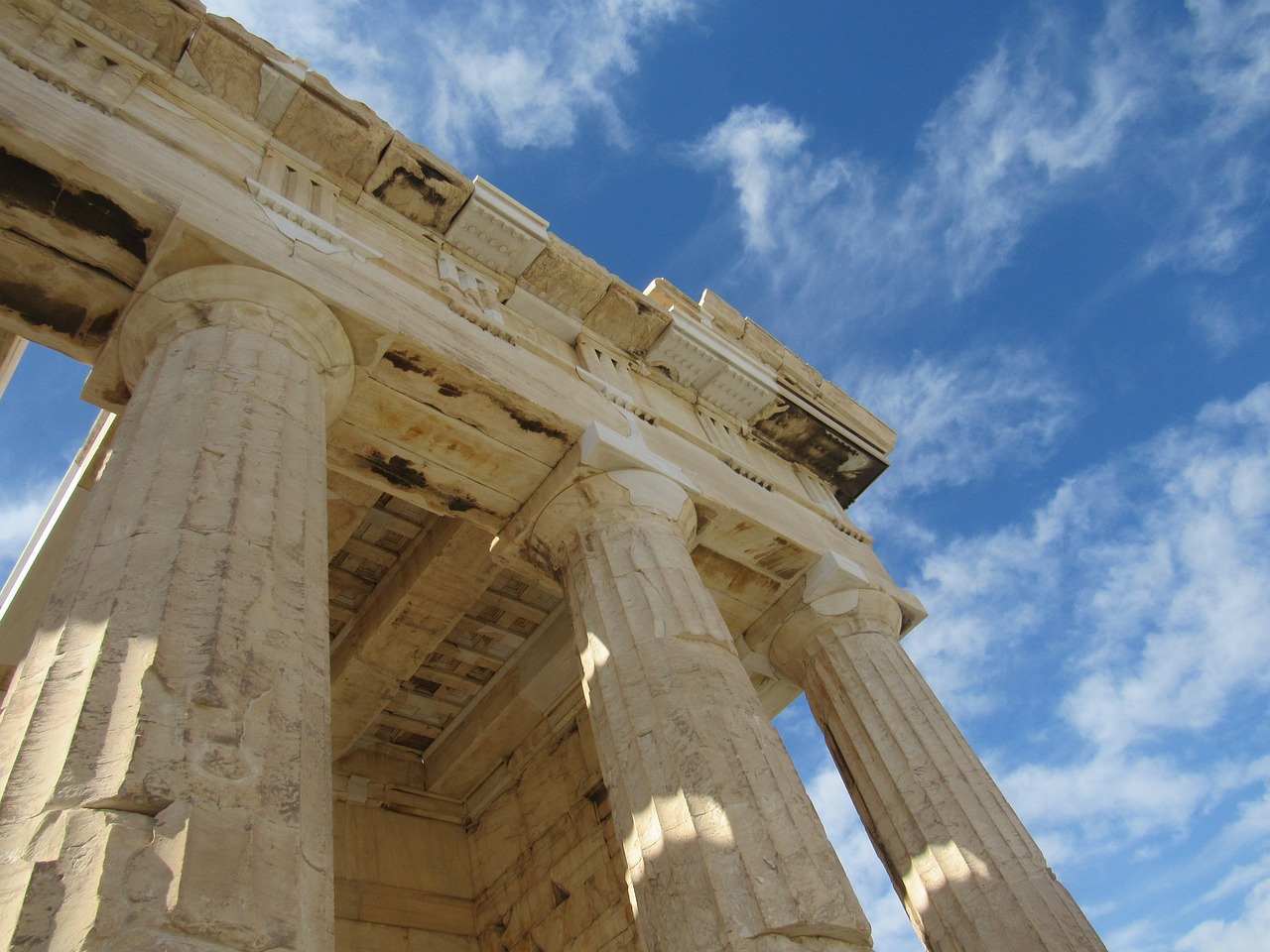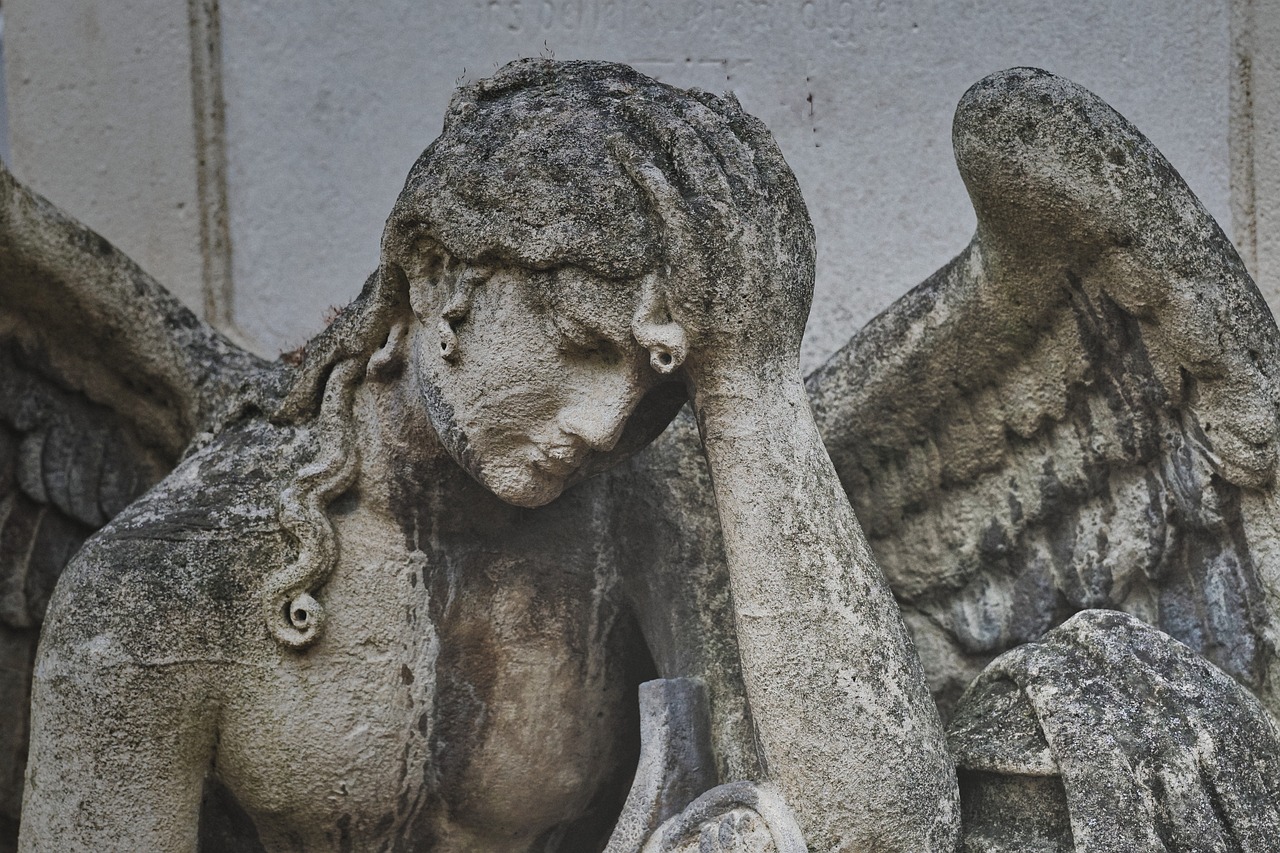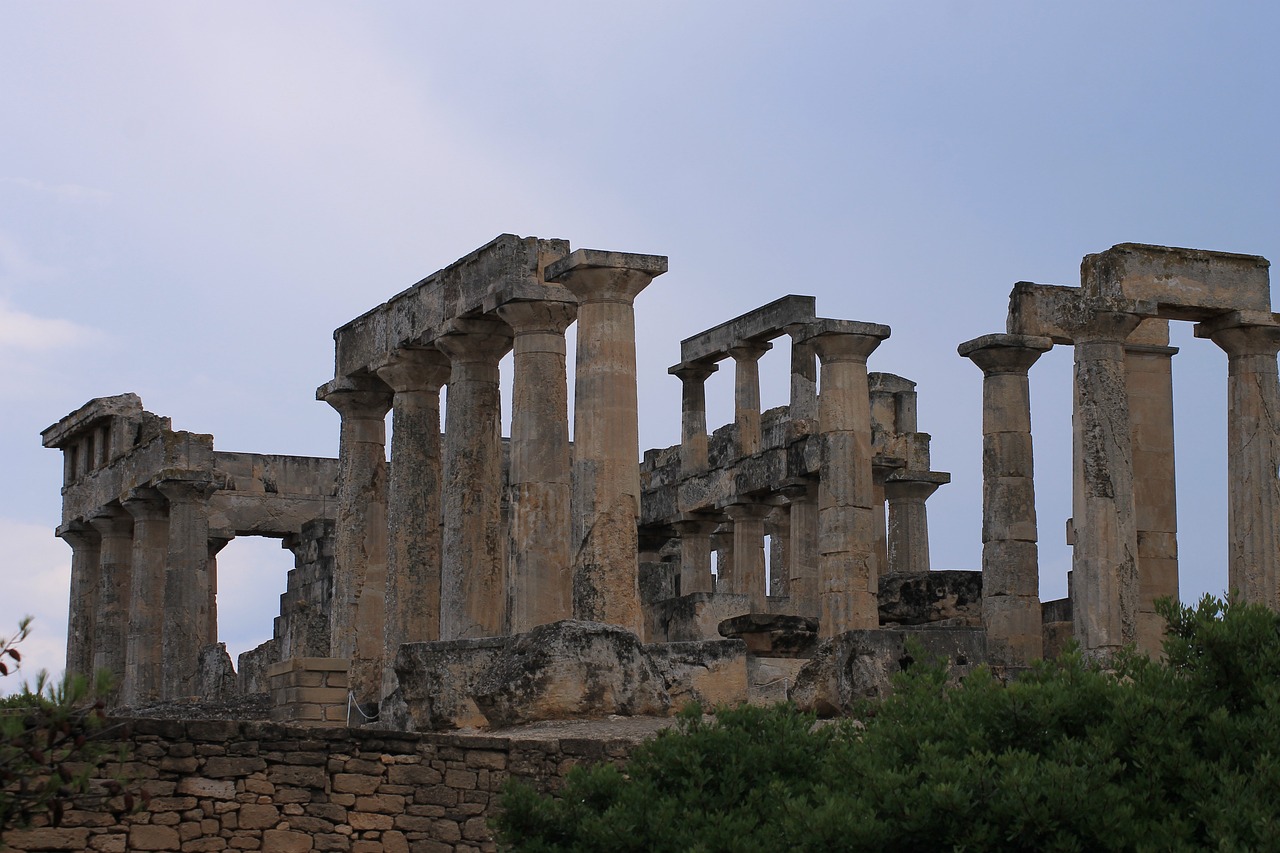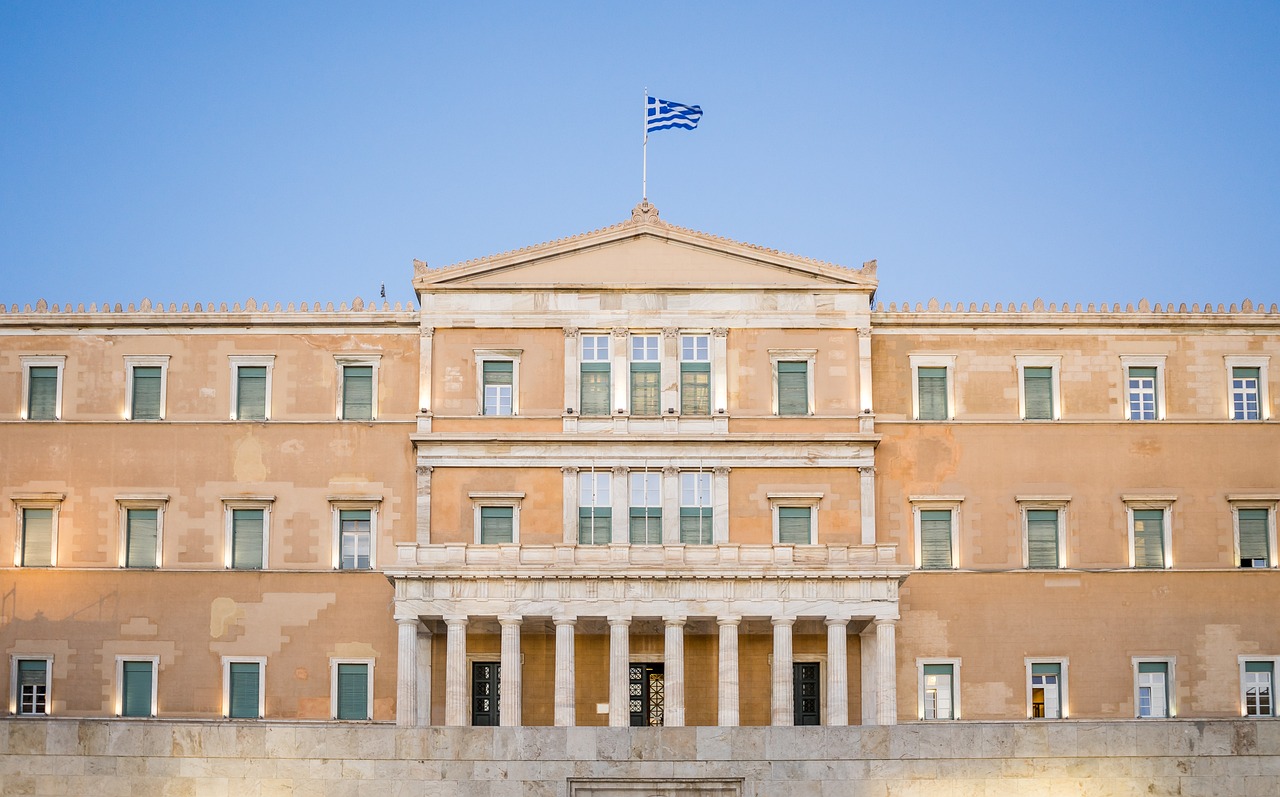How Ancient Greek Philosophy Intersects with Religion
Ancient Greek philosophy and religion have a deep and intricate relationship that has shaped the intellectual and spiritual landscape of ancient Greece. The intersection of these two realms has led to a rich tapestry of ideas, beliefs, and practices that continue to influence our understanding of philosophy and religion today. Greek philosophers, such as Socrates, Plato, and Aristotle, delved into profound questions about the nature of the divine, ethics, and the afterlife, while religious traditions centered around gods and goddesses permeated every aspect of Greek society.
Philosophy in ancient Greece was not separate from religion but rather intertwined with it, offering different perspectives and insights into the fundamental questions of existence. The philosophical inquiry into the divine overlapped with religious beliefs, challenging traditional notions and pushing the boundaries of thought. As philosophers sought to understand the nature of reality and the human experience, their ideas often intersected with and influenced religious practices and beliefs.
One of the key intersections between Greek philosophy and religion was the exploration of ethical considerations. Both philosophical schools and religious teachings grappled with questions of morality, virtue, and the good life, providing guidance on how individuals should conduct themselves in society. The ethical frameworks developed by philosophers and religious leaders shaped the moral fabric of ancient Greek culture, emphasizing the importance of living a virtuous and just life.
Moreover, mystical elements in Greek philosophy and religion added a dimension of spirituality and transcendence to the intellectual and religious landscape. Mystical experiences, esoteric teachings, and spiritual practices offered seekers a path to deeper understanding and connection with the divine. The exploration of mystical elements in both philosophy and religion blurred the lines between rational inquiry and spiritual revelation, enriching the philosophical and religious discourse of ancient Greece.
As Greek philosophical ideas permeated religious practices, new interpretations of rituals, beliefs, and the nature of the divine emerged. The integration of philosophical concepts into religious traditions led to the development of diverse religious movements and philosophical schools, each offering a unique perspective on the fundamental questions of existence. While debates and conflicts between philosophy and religion were not uncommon, the legacy of ancient Greek philosophy and religion continues to shape our understanding of the world and our place within it.

Foundations of Greek Philosophy
Ancient Greek philosophy and religion have long been intertwined, influencing each other in profound ways. This article explores the connections between these two realms, shedding light on how philosophical ideas shaped religious beliefs and practices in ancient Greece.
Greek philosophy emerged in the 6th century BCE, with thinkers like Thales and Pythagoras laying the groundwork for future philosophical developments. Their inquiries into the nature of the universe and human existence set the stage for deeper philosophical exploration.

Religious Context in Ancient Greece
Ancient Greek society was deeply intertwined with religion, with beliefs in a pantheon of gods and goddesses shaping every aspect of life. The Greeks viewed their deities as powerful beings who influenced natural phenomena, human affairs, and the course of history. Temples dedicated to different gods dotted the landscape, serving as centers of worship and communal gatherings. The religious practices of the Greeks were not only about appeasing the gods but also about seeking their favor and guidance in daily life.
Rituals and ceremonies played a significant role in ancient Greek religion, with offerings and sacrifices made to the gods to ensure their goodwill. Festivals honoring specific deities were celebrated throughout the year, bringing communities together in shared reverence and celebration. These religious observances were not just formalities but were deeply ingrained in the fabric of Greek culture, influencing social norms, governance, and personal beliefs.
The belief in divine intervention and the influence of gods on human affairs permeated Greek thought, shaping their understanding of the world and their place in it. Oracle consultations, divination practices, and interpretations of omens were common ways for individuals to seek divine guidance and insight into future events. The concept of fate, as controlled by the gods, underscored the Greeks' belief in a predetermined course of life that could be influenced by piety and devotion.

Philosophical Inquiry into the Divine
Ancient Greek philosophy and religion have long been intertwined, influencing each other in profound ways. This article explores the connections between these two realms, shedding light on how philosophical ideas shaped religious beliefs and practices in ancient Greece.
In ancient Greece, philosophers embarked on a profound quest to unravel the mysteries of the divine. They pondered the nature of gods, their attributes, and their influence on the world. Through rigorous contemplation and debate, these thinkers sought to understand the role of the divine in shaping human existence.
Philosophers such as Plato delved into metaphysical realms, exploring the concept of a higher reality beyond the physical world. They questioned the existence of a single supreme deity or a pantheon of gods governing different aspects of life. These inquiries into the divine not only sparked intellectual curiosity but also challenged traditional religious beliefs.
One of the central questions in philosophical inquiry was the relationship between gods and mortals. Did the gods intervene in human affairs, or were they distant observers of earthly events? Philosophers grappled with the concept of divine providence and the extent of human agency in a world governed by divine powers.
Moreover, discussions on the nature of the afterlife captivated the minds of Greek philosophers. What awaited individuals after death? Was there a realm of eternal reward or punishment, or did existence simply cease with the end of life? These contemplations on the afterlife intertwined philosophical speculation with religious beliefs about the soul's journey beyond the physical realm.
As philosophical inquiry delved deeper into the divine, it challenged conventional religious narratives and prompted critical reflection on the nature of faith and spirituality. The exploration of the divine in Greek philosophy laid the groundwork for future theological debates and shaped the evolving relationship between philosophy and religion in ancient Greece.
Q: How did Greek philosophy influence religious beliefs in ancient Greece?
A: Greek philosophy introduced new perspectives on the nature of the divine, ethical considerations, and metaphysical concepts that influenced religious practices and beliefs.
Q: Were there conflicts between philosophical inquiry and religious orthodoxy in ancient Greece?
A: Yes, tensions often arose between philosophical thinkers challenging traditional religious doctrines and authorities, leading to debates over theological principles and the nature of divinity.
Q: What is the lasting legacy of ancient Greek philosophy and religion?
A: The enduring influence of Greek philosophical ideas on modern thought, ethics, and spirituality highlights the profound impact of ancient Greek intellectual and religious heritage on contemporary belief systems.

Ethical Considerations in Philosophy and Religion
When exploring the intersection of philosophy and religion in ancient Greece, ethical considerations played a pivotal role in shaping both realms. Philosophers such as Socrates and Plato delved into questions of virtue, justice, and the nature of the good life, seeking to understand the moral fabric of society. Their inquiries not only influenced philosophical discourse but also had a profound impact on religious thought and ethical frameworks within Greek society.
Within the context of religion, ethical considerations were deeply intertwined with the worship of gods and goddesses. Rituals and sacrifices were not merely acts of devotion but also reflections of ethical values and societal norms. The ethical dimensions of religious practices guided the behavior of individuals and communities, emphasizing the importance of moral conduct and righteousness.
Philosophical inquiry into ethics went beyond religious rituals, delving into the fundamental principles that govern human behavior. Concepts such as the pursuit of wisdom, the cultivation of virtues, and the quest for a harmonious society were central to both philosophical and religious teachings. Ethical considerations in philosophy and religion aimed to guide individuals towards a life of moral excellence and social responsibility.
While philosophical discourse often sought rational explanations for ethical dilemmas, religious teachings provided moral guidance based on divine authority and spiritual beliefs. The dialogue between philosophy and religion on ethical matters enriched the ethical landscape of ancient Greek society, fostering a deeper understanding of human nature, societal values, and the interconnectedness of the individual with the community.
Ultimately, ethical considerations in philosophy and religion served as guiding principles for individuals seeking to navigate the complexities of life, morality, and the pursuit of the good. The ethical frameworks established by both philosophical inquiry and religious teachings continue to resonate in contemporary ethical debates and discussions, highlighting the enduring relevance of ethical considerations in shaping human conduct and societal norms.

Mystical Elements in Greek Philosophy and Religion
Ancient Greek philosophy and religion have long been intertwined, influencing each other in profound ways. This article explores the connections between these two realms, shedding light on how philosophical ideas shaped religious beliefs and practices in ancient Greece.
Greek philosophy emerged in the 6th century BCE, with thinkers like Thales and Pythagoras laying the groundwork for future philosophical developments. Their inquiries into the nature of the universe and human existence set the stage for deeper philosophical exploration.
Religion played a central role in ancient Greek society, with beliefs in gods and goddesses shaping various aspects of life. Rituals, sacrifices, and festivals were common practices that reflected the importance of religion in the lives of the Greeks.
Greek philosophers grappled with questions about the nature of the divine, seeking to understand the gods and their role in the cosmos. Their inquiries into the existence of gods, divine attributes, and the afterlife influenced religious thought in ancient Greece.
Both Greek philosophy and religion addressed ethical questions concerning human behavior and morality. Philosophers like Socrates and Plato, as well as religious leaders, explored the concepts of virtue, justice, and the good life, shaping ethical frameworks in Greek society.
Some Greek philosophers and religious practitioners delved into mystical experiences and esoteric teachings, seeking deeper spiritual insights beyond rational inquiry. The exploration of mystical elements in both philosophy and religion added layers of complexity to ancient Greek thought.
Greek philosophical ideas influenced religious practices in ancient Greece, shaping rituals, beliefs, and interpretations of the divine. The integration of philosophical concepts into religious traditions led to the development of new religious movements and philosophical schools.
Throughout history, tensions and conflicts arose between philosophical inquiry and religious orthodoxy in ancient Greece. Disputes over theological doctrines, the nature of divinity, and the authority of religious institutions highlighted the complex relationship between philosophy and religion.
The legacy of ancient Greek philosophy and religion continues to resonate in modern thought and belief systems. The enduring influence of Greek ideas on philosophy, ethics, and spirituality underscores the lasting impact of this rich intellectual and religious heritage.

Impact of Greek Philosophy on Religious Practices
Ancient Greek philosophy had a profound impact on religious practices in ancient Greece, shaping the way rituals were conducted, beliefs were held, and the divine was interpreted. Philosophical ideas intertwined with religious traditions, influencing the development of new religious movements and schools of thought.
One significant impact of Greek philosophy on religious practices was the integration of philosophical concepts into traditional rituals and ceremonies. Philosophers' inquiries into the nature of the divine and the cosmos influenced how religious rituals were performed and understood.
Moreover, Greek philosophical ideas challenged traditional religious beliefs and interpretations, leading to the emergence of new ways of understanding the gods and goddesses. The exploration of ethical considerations in philosophy also influenced the moral frameworks within religious practices.
Philosophers like Socrates and Plato, known for their ethical inquiries, contributed to shaping the ethical dimensions of religious practices. Concepts of virtue, justice, and the good life discussed in philosophical dialogues found their way into religious teachings and practices.
The impact of Greek philosophy on religious practices was not without conflicts and debates. Tensions arose between philosophical inquiry and religious orthodoxy, as differing views on theological doctrines and the nature of divinity clashed.
Despite these challenges, the integration of philosophical ideas into religious practices enriched the spiritual landscape of ancient Greece, fostering a dynamic interchange between philosophy and religion that continues to influence thought and belief systems to this day.

Debates and Conflicts between Philosophy and Religion
Debates and conflicts between philosophy and religion have been a recurring theme throughout history, especially in ancient Greece where both realms held significant influence over society. Philosophical inquiry often challenged established religious beliefs, leading to intellectual clashes and doctrinal disputes that shaped the cultural landscape of the time. The tension between rational exploration and faith-based traditions fueled debates on theological doctrines, the nature of divinity, and the authority of religious institutions.
One of the central points of contention between philosophy and religion was the concept of the divine. While religious practices in ancient Greece revolved around the worship of gods and goddesses, philosophers questioned the nature and existence of these divine beings. The clash between philosophical skepticism and religious dogma created a fertile ground for intellectual discourse but also sparked conflicts over fundamental beliefs.
Moreover, ethical considerations provided another battleground for debates between philosophy and religion. Both philosophical inquiry and religious teachings sought to guide human behavior and moral conduct, but they often diverged in their approaches. Philosophers like Socrates and Plato proposed rational ethical frameworks based on reason and virtue, challenging traditional religious views on morality rooted in divine commandments.
As philosophical schools flourished and religious practices evolved, conflicts emerged over the authority to dictate truth and shape societal norms. The competing claims of philosophy and religion to provide answers to life's fundamental questions led to clashes over the interpretation of reality, the purpose of existence, and the nature of ultimate truth. These debates not only reflected the intellectual vibrancy of ancient Greek society but also highlighted the enduring struggle between reason and faith in human thought.

Legacy of Greek Philosophy and Religion
The legacy of ancient Greek philosophy and religion is a profound and enduring one, shaping the intellectual and spiritual landscape of Western civilization for centuries. The rich tapestry of ideas woven by Greek philosophers and religious thinkers continues to influence contemporary thought in philosophy, ethics, and spirituality.
A key aspect of this legacy lies in the philosophical foundations laid by thinkers such as Socrates, Plato, and Aristotle. Their inquiries into the nature of reality, ethics, and the human condition have formed the basis of Western philosophical thought, providing a framework for exploring fundamental questions about existence and morality.
Moreover, the ethical frameworks developed in ancient Greek philosophy, centered on concepts of virtue, justice, and the good life, continue to inform contemporary discussions on ethics and morality. The emphasis on living a virtuous life and seeking knowledge as a path to personal fulfillment resonates with modern ethical theories and practices.
On the religious front, the legacy of ancient Greek religion can be seen in the enduring influence of Greek mythology and the pantheon of gods and goddesses. The stories of Zeus, Athena, and Apollo have permeated art, literature, and popular culture, serving as archetypes that continue to captivate and inspire creativity.
Furthermore, the blending of philosophical inquiry with religious beliefs in ancient Greece has left a lasting impact on the development of religious thought. The integration of philosophical concepts into religious practices led to the emergence of new religious movements and schools of thought, enriching the spiritual landscape with diverse perspectives.
In conclusion, the legacy of ancient Greek philosophy and religion is a testament to the power of human intellect and imagination. By exploring the mysteries of the cosmos, delving into ethical quandaries, and seeking spiritual enlightenment, the ancient Greeks laid the foundation for a legacy that continues to shape our understanding of the world and our place within it.
Frequently Asked Questions
- What is the significance of Ancient Greek philosophy in the context of religion?
Ancient Greek philosophy played a crucial role in shaping religious beliefs and practices in ancient Greece. Philosophers' inquiries into the nature of the divine, ethical considerations, and mystical elements influenced religious thought and rituals, leading to a complex interplay between philosophy and religion.
- How did Greek philosophers contribute to ethical frameworks in Greek society?
Greek philosophers such as Socrates and Plato explored concepts of virtue, justice, and the good life, laying the foundation for ethical considerations in both philosophy and religion. Their teachings influenced moral values and ethical behavior, impacting the societal norms of ancient Greece.
- What was the legacy of Greek philosophy and religion on modern thought?
The enduring influence of ancient Greek philosophy and religion can be seen in modern philosophy, ethics, and spirituality. Greek ideas continue to shape contemporary beliefs and intellectual discourse, highlighting the lasting impact of this rich philosophical and religious heritage.



















